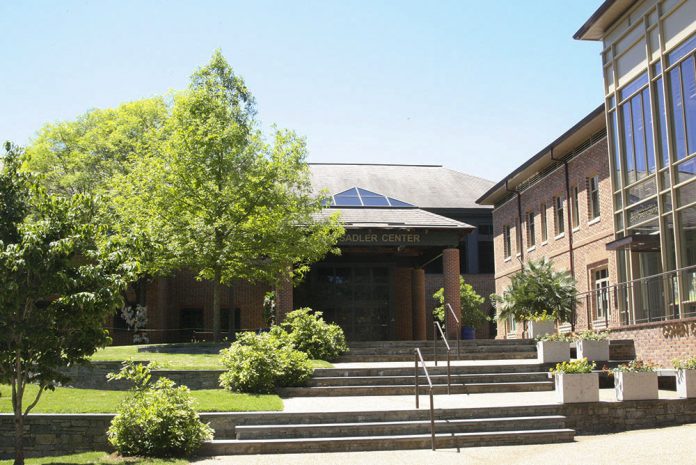Feb. 24-27, College of William and Mary students Audrey Bell ’20 and Samantha Phillips ’21 hosted National Eating Disorders Awareness Week, an event series that Bell and Phillips had been planning for months.
Back in January, the College’s NEDA Facebook group first shared the week’s theme for 2020, “Come as You Are: Hindsight is 20/20.” The theme was set to encompass the positives of self-reflection and growth.
However, the event received some backlash from members of the College community, specifically from those who felt that the advertising for the week was harmful and triggering.
At one of the events for NEDA week, Bell addressed the controversy and discussed what NEDA week means in her opinion.
“I am so excited to see how many people came out tonight,” Bell said. “However, I must admit that I have heard and received a bit of backlash and commentary regarding the nature of the week. NEDA week is a time to reflect on recovery and progress and has no intention of causing harm to anyone.”
“I am so excited to see how many people came out tonight,” Bell said. “However, I must admit that I have heard and received a bit of backlash and commentary regarding the nature of the week. NEDA week is a time to reflect on recovery and progress and has no intention of causing harm to anyone.”
Student-run Facebook groups “Swampy Memes for TWAMPy Teens” and “William and Mary Good Vibes” became flushed with comments and concern for the advertising and increased discussion on campus to promote the week’s events with some supporting the week and others criticizing the events.
One of the panelists of the student event Trever Binau ’23 spoke on the controversy.
“While I don’t personally find the advertising upsetting, I do see the potential for it to do so for someone else,” Binau said. “If someone is in recovery, then everything has the potential to serve as a reminder to their time before recovery began and is indisputably able to serve as a trigger for a flashback.”
“While I don’t personally find the advertising upsetting, I do see the potential for it to do so for someone else,” Binau said. “If someone is in recovery, then everything has the potential to serve as a reminder to their time before recovery began and is indisputably able to serve as a trigger for a flashback.”
In addition, some students were upset by what they felt was too explicit of language used in the advertising and believed the wording to be potentially harmful and triggering to someone in recovery.
“When people share their experiences with eating disorders, it is raw and emotional,” Binau said. “It can be hard to hear and honestly some people are probably not in the proper mindset to hear those sorts of things quite yet.”
However, the backlash had minimal effect on the crowds, with each event attracting a crowd of at least 100 patrons.
The week started off with a profit share at Aromas Coffeehouse, Bakeshop and Cafe in Colonial Williamsburg. Sandwiched between the profit share and a self-care fair were two open-dialogue events — the Navigating Diet Culture Workshop and a student panel — where students freely discussed their stories, their recovery and the stigma behind eating disorders.
The Navigating Diet Culture Workshop proved to be one of the more successful events of the week. Led by clinician Ashley Kasardo, the workshop emphasized statistics and facts geared toward shutting down the myths of diet culture.
Caroline Rhodes ’21 shared her story and the role her athletic career played in developing an eating disorder. She described how swimming was one of her first loves in life and how over time, she began to find a second love.
“Today I am going to talk to you about the two greatest loves of my life,” Rhodes said. “The first love of my life I met when I was five years old and I was thrown into a pool for the first time.”
Rhodes detailed her swimming career from summer swim teams through to committing to swim for the College. However, nearing the end of her senior season, an experience between herself and her swim coach left her blindsided.
“My coach, Bruce, had always told me, ‘if you want to be successful, if you want to see results, you show up and you get it done. Work works,’” Rhodes said. “I really took this mindset to heart, and that’s where I took it too far. I put an immense amount of pressure on myself, I completely thought in all or nothing terms.”
After a swim meet halfway through her senior year of high school, Rhodes’ coaches sat the team down and told them that they were now responsible for managing their body weight. Months later, Rhodes received a call from her doctor while at a swim meet. She was bradycardic and was at risk of a heart attack if she swam.
“It was then I met the second love of my life,” Rhodes said. “The second love of my life is my recovery.”




































